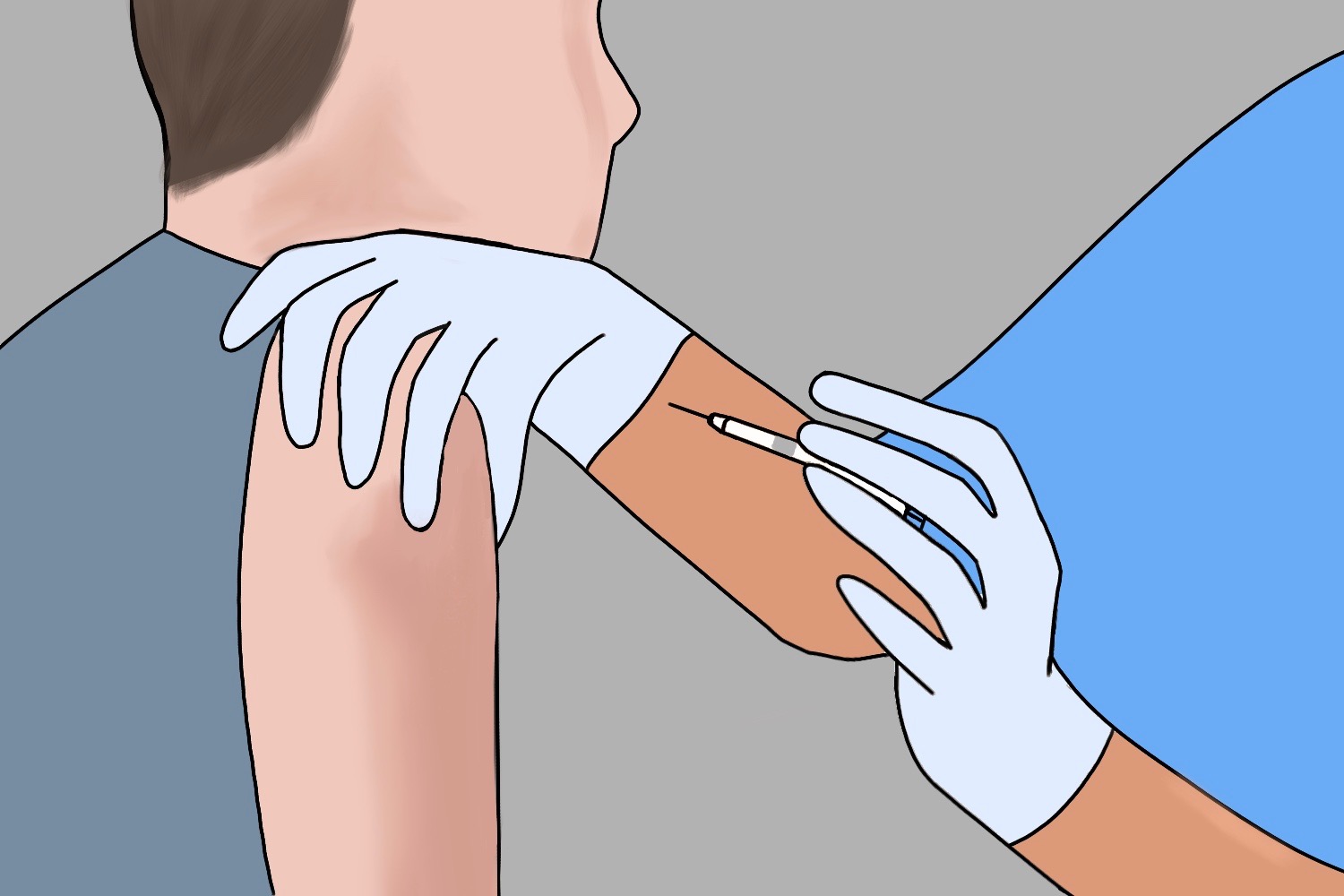Parents who are hesitant about vaccinating their children are contributing to a resurgence in infectious childhood diseases like measles and polio in the U.S.
In recent years, there have been many cases of them in the news: Misinformation about vaccines and a lack of understanding of the importance of vaccination are causing parents to hesitate to vaccinate their children.
“As a long-term infectious disease expert, I am dismayed at the return of vaccine-preventable diseases in the wake of the COVID-19 pandemic,” said Monica Gandhi, an infectious disease expert and director at the University of California in San Francisco.
Both measles and polio are highly contagious diseases that can be fought successfully by immunization and it was thought the U.S. was close to eliminating these diseases for good.
However, misinformation from the internet, religious communities, and through word of mouth, along with a lack of understanding of the science behind vaccines has contributed to uncertainty about the vaccine. Loss of trust in public health also plays an important factor.
“Vaccines are far more important than people understand at a gut level,” said Dr. Eric Perez, a pediatrician at Sutter Health in Burlingame, California.
Most American children are vaccinated but there are pockets of communities in the US where children are not vaccinated. When any of these unvaccinated children become infected, there is a potential for a larger outbreak.
“Parents think that not doing something is safer than doing something,” Perez said.
One such measles outbreak was in Disneyland, California in 2014-2015. Perez handled one of the families in this case. He said one of the adults was not vaccinated against measles as a child due to their parents’ lifestyle. As a result, they contracted measles.
A more recent measles outbreak in Columbus, Ohio, beginning in early November 2022 started with four unvaccinated kids in a daycare facility but soon increased to 50 cases. All were unvaccinated.
Like measles, polio is another childhood disease that has been reported in the U.S., although less commonly.
“In my practice, I haven’t seen infectious diseases like measles and polio yet, but I’m certain I will soon,” said Dr. Priyanka Vyas, a pediatrician in Gainesville, Florida.
An example of a polio case was reported in late July 2022, in Rockland County, New York. An unvaccinated adult was confirmed to have a case of polio. In addition, polio was detected in the wastewater of some counties including Orange and Sullivan counties.
There are two types of polio vaccine: one is the inactivated vaccine, developed by Jonas Salk, and the other is a live attenuated vaccine which is delivered orally, developed by Albert Bruce Sabin. The oral version can, but very rarely, revert to the pathogen form with a 1 in 2.4 million chance.
Contributing to these outbreaks are parents who are hesitant to vaccinate their children.
“Trust in public health has decreased during the COVID-19 pandemic,” Gandhi said.
Scientific institutions face a credibility crisis, even before the pandemic. It provided a fertile environment for breeding confusion and distrust.
Not only is the credibility of scientists foundational to vaccine hesitancy, but trust in non-credible sources amplifies distrust in the scientific community.
“With too much information circulating online and in other media during the pandemic, we were suffering from an infodemic,” Gandhi said.
An infodemic is where there is too much information, including false and misleading information, during a disease outbreak. It can intensify uncertainty in health institutions and undermine the public health response. With growing digitalization, information can spread more quickly. Though this can help fill information voids, it can also amplify harmful messages.
Too much information causes uncertainty in parents about vaccines.
“They’re afraid of too many antigens, too many shots, preservatives sometimes, the ingredients in the vaccines; there are various reasons why a parent may be hesitant,” Vyas said.
Most vaccine-hesitant parents do not have the time to seek the answers to the anti-vaccine talking points that scare them and pediatricians often feel they do not have enough time to have a talk with their vaccine-hesitant parents. As a result, these parents cannot obtain the right information they need.
Parent lack of access to the same amount of knowledge about vaccines as medically-trained professionals isn’t the only thing behind low vaccination rates in the U.S.
“It’s a combination of people’s access to the information and not understanding what they’re reading at a technical level,” Perez said.
According to Perez, most of the information parents receive is from parent groups, their communities, and family and friends. They are constantly bombarded with other people’s opinions.
Evidence indicates that even a relatively short time spent on a vaccine-critical website can dissuade parents from vaccination. Referring to a recent Nature publication, she described how Facebook users expressing anti-vaccine views tend to have a higher reach than those in favor of vaccines (Johnson et al., 2020).
A Facebook page analysis finds that short periods on vaccine-critical websites have the capacity to alter parents’ minds about vaccinating. They tend to use the internet to back up their reasons for not vaccinating their children.
In some communities, religion plays a significant role in parents’ personal beliefs about immunization.
“We get outbreaks of measles from all sorts of specific religious groups,” Perez said.
An example of this is the measles outbreak in the Orthodox Jewish communities in Brooklyn and Rockland counties in New York. This was due to the vaccine symposiums that were held with featured speakers who encouraged shunning immunization. So in June 2019, lawmakers from New York voted to end religious exemption from immunization.
Although measles was declared eliminated in 2000, in 2019, almost 1,300 cases were reported in 31 states. This was the highest number of measles cases since 1992.
Another factor behind parents’ and people’s uncertainty about the vaccine is their local leaders.
“You got to get the thought leaders, and the internet makes it harder; this is an amorphous group of thought leaders who have no accountability,” Perez said.
They have a great deal of power and sway over their community. In Nigeria, the local religious leaders have convinced the population of vaccine conspiracy theories. For example, some participants in a study said they heard the COVID-19 pandemic is a result of God’s anger or a sign of the end of time.
These leaders, as well as misinformation and lack of understanding, make it harder for medical professionals to help their patients, as these factors cause them to think differently about the vaccine.
“They’re not thinking about the people who, for other medical reasons, cannot get the vaccine. They’re depending on the rest of their classmates having had the vaccine so they don’t get exposed,” Perez said.
Some of these parents may also think contracting the disease may help their child’s immune system grow stronger. Others believe the diseases are not very common, so there’s no need to vaccinate. Another reason why parents may not see the need to vaccinate is because other parents are vaccinating their kids, and so the unvaccinated kids are being partially protected by herd immunity.
Vaccine-hesitant parents may also be under the assumption that if their children were to contract a disease, it would be easily treatable.
“Many have no faith in the vaccine and have complete faith in our ability to treat them once sick,” Perez said.
Pediatricians can only take care of one person at a time, so it is hard to deal with a mass outbreak.
Some pediatricians do not want parents who will not vaccinate their children in their clinic. But many doctors, like Perez, Vyas, and Ghandi are trying to do their part in helping vaccine-hesitant parents.
“My biggest thing as a pediatrician is that we have to educate parents and sometimes educating them every visit may get them to change. Even if I change the mindset of maybe one or two patients, I feel like I’ve done something,” Vyas said.
Pediatricians also try to reason with parents through their personal experiences.
“In India, I did see a lot of cases that were vaccine-preventable and so I know how bad it is. People who’ve trained and studied here haven’t had the chance to see those diseases, but I’ve seen complications with measles, I’ve seen kids with polio, so I know the burden of these diseases,” Vyas said.
Due to the development of vaccines, childhood diseases like measles and polio have become less common in the U.S. People have forgotten how tragic the results of these diseases are.
There is some new research that reveals catching measles can result in more susceptibility to future viral and bacterial infections. Scientists have discovered one unusual side effect of measles is immune amnesia. This is where the immune system loses its knowledge of all the pathogens it has encountered to date. Measles attacks the memory cells and erases the information, sometimes permanently.
Doctors need multiple approaches to work with vaccine-hesitant parents to ensure there is no resurgence of childhood diseases.
“The only way to combat these vaccine-preventable illnesses is to increase vaccination rates, which will take building back trust in public health, community involvement, and messaging on the importance of routine childhood immunizations,” Gandhi said.



